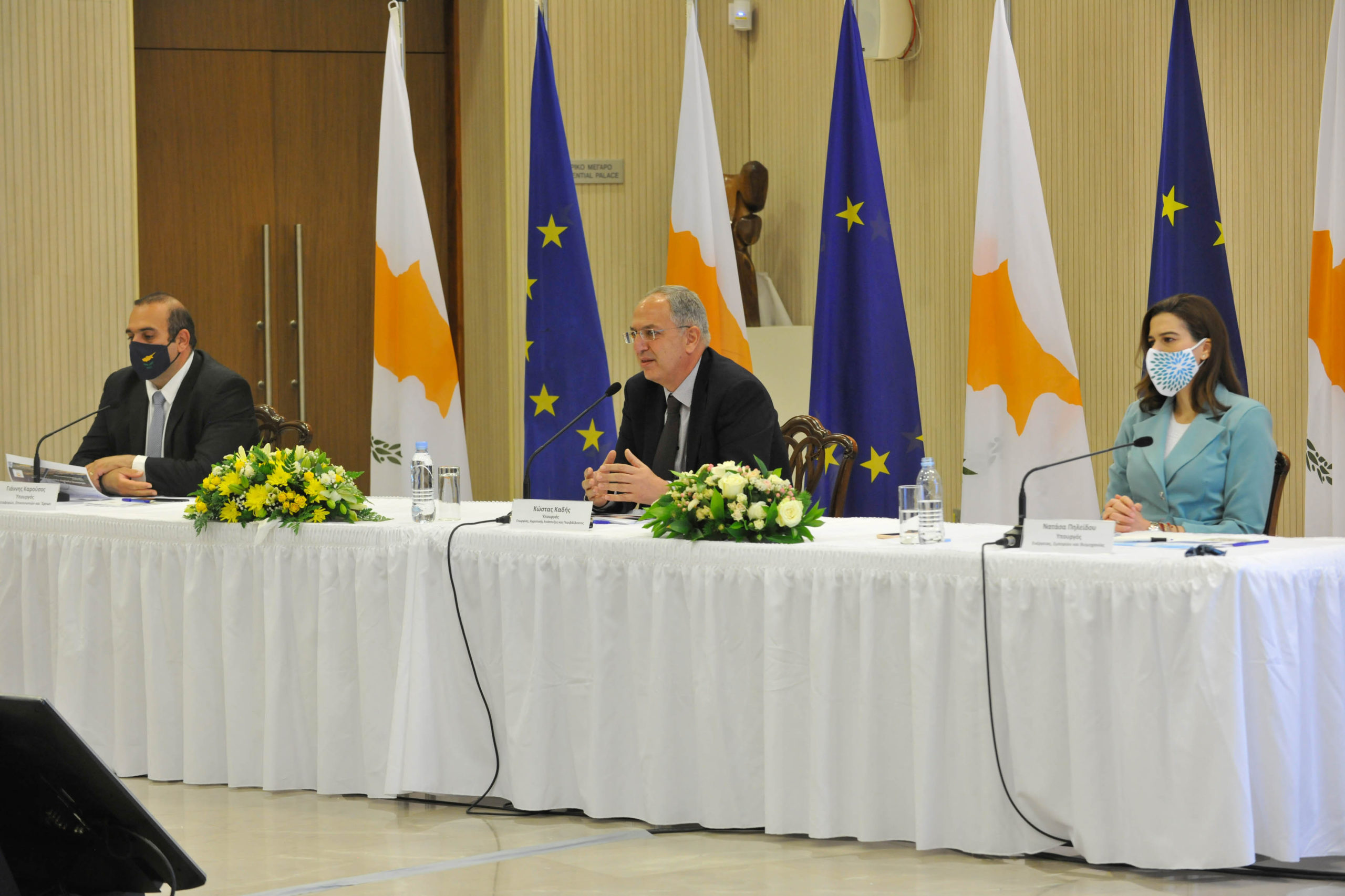Cyprus will allocate over €1 bln for a speedy transition to a Green economy built on renewable energy over the next five years.
Agriculture Minister Costas Kadis, Energy Minister Natasa Pilides and Transport Minister Yiannis Karousos presented their vision for a greener future on Monday.
The transition focuses on the environment, ending Cyprus’ energy isolation, electromobility, upgrading renewable energy sources, sustainable water resources management, and circular economy.
The National Recovery and Resilience Plan’s second pillar promotes the Green Economy with a budget of €448.3 mln.
It aims to contribute to green transition and environmental sustainability by achieving the national goals for climate neutrality, energy efficiency, and renewable energy sources.
The third pillar, which concerns the reinforcement of the economy’s resilience and competitiveness, also contributes to the Green economy’s speedy transition with actions amounting to €64.3 mln, aiming to achieve a circular economy.
Some 41% of the €1.23 bln investments of the Recovery and Resilience Plan (€512 mln) have to do with the green transition.
Kadis said this highlights the government’s aim to achieve a greener economy and a more sustainable environment.
Apart from the Recovery and Resilience Plan, other European funds and funding mechanisms are being tapped into for an added contribution of €750 mln.
Pilides said funds would be allocated in the form of incentives to attract investments to make the country more sustainable and competitive. At the same time, there will also be investments in research and infrastructure projects.
Karousos said that the government would provide a total of €89.3 mln to support the electrification of Cyprus’ transport system.
The government plans to encourage the use of electric cars with an incentive scheme, the withdrawal of older, more polluting vehicles, and infrastructure development.
Some €38.6 mln is earmarked for an incentive scheme to buy an electric car and help the public sector use electric transport.
To encourage the purchase of electric vehicles, the government will install 1000 recharging points.










